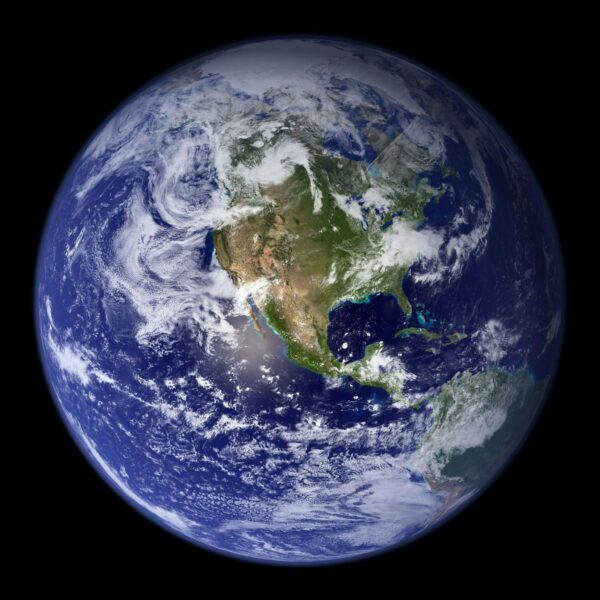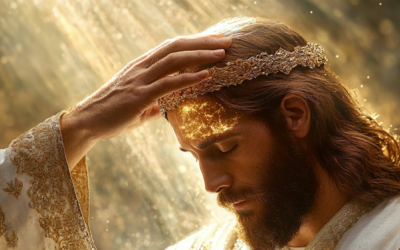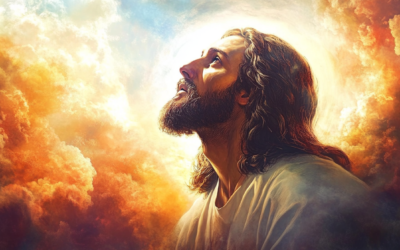“For the wrath of God is revealed from heaven against all ungodliness and unrighteousness of men, who hold the truth in unrighteousness;
[19] Because that which may be known of God is manifest in them; for God hath shewed it unto them.
[20] For the invisible things of him from the creation of the world are clearly seen, being understood by the things that are made, even his eternal power and Godhead; so that they are without excuse”
(Romans 1:18-20)
Introduction
I know it may seem strange to start a discussion about the origin of the world with a verse from Romans, but there is a reason for this. Paul tells us that God has already been revealed to us before, but people [man] hold the truth in unrighteousness. Paul explains that we know that God exists based on the fact that the natural things present in the world are made by design, and this can only be true because of the eternal power and Godhead within the Father. Essentially, because the natural world exists by design, we are without excuse—we know that God is real.
As a child, I have always pondered this. In school, we are taught about multiple “theories” (e.g., the Big Bang) that attempt to explain how the beginning of the universe came to be. Even as a Biology teacher, I was subject to teaching these concepts. Now, as I learn more about the Father from the Holy Spirit, I realize that science serves to solidify one truth: everything in this world was created by design, and nothing was created by happenstance or random chance.
The only way to explain the creation of the universe is for there to be a Creator of all things that transcends the physical realm; and that Creator is God the Father. Everything that we know about our universe is just a miniscule fraction of reality. There are many more “unknowns” than there are “knowns,” and the things which we do know to exist are so intricate in design… I find it impossible to believe that everything just “happened” to have a different function and construction unless it was designed as such.
Consider this for a moment: how magnificent is it that everything on Earth is perfectly designed for us to live? Every single cell, atom, grain of sand, blade of grass, ray of sunshine was created with a purpose: to sustain life—our life. We often find it amazing when people create magnificent works of art or architecture, but fail to acknowledge the beauty and works of the true Architect who created the entire universe.

The Taj Mahal is considered by many to be the most impressive and spectacular architectural pieces in the world created by man. Photo courtesy of Mr. Lalit Rajora.

Earth, the place we all call “home,” was created by God. Photo taken from Pexels.
The Taj Mahal fails in comparison to the true beauty of Earth…and Earth isn’t even the most grandiose place created by God: Heaven is.
Our minds cannot comprehend the power of God—it is unfathomable to think that someone could create such magnificence. God is magnificent and beyond our limited understanding; so much so that He knows when a bird lands on the earth and even the number of hairs on each person’s head:
“Are not two sparrows sold for a farthing? and one of them shall not fall on the ground without your Father.
[30] But the very hairs of your head are all numbered.
[31] Fear ye not therefore, ye are of more value than many sparrows.”
(Matthew 10:29-31)
God’s power is without limit; it is incomprehensible to us the extent of what He can do or create. For us, Heaven is the most grand place we can hope to be. We cannot begin to comprehend the true beauty of Heaven, for it is not possible for something of a physical, finite realm to grasp the reality of a spiritual realm unless God Himself allows us. With this context in mind, let’s start with how the world began in Genesis 1.
How Heaven, Earth, and man came to be
There has been a lot of controversy amongst scholars regarding the origin of the universe. However, the truth resides in knowing that it is the LORD God, the Father, who does all things alone and by Himself (Isaiah 44:6), meaning it is by His spirit and power alone that the heavens and the earth were created. In the first verses of Genesis, it reads:
“In the beginning God created the heaven and the earth.
[2] And the earth was without form, and void; and darkness was upon the face of the deep. And the Spirit of God moved upon the face of the waters.
[3] And God said, Let there be light: and there was light.”
(Genesis 1:3)
The very first verse of the entire Bible starts with God creating the heavens and the earth, and we know that the Holy Spirit is present. But the question to ask is how exactly did God create the heavens and the earth? Nowhere in scripture does it state the Holy Spirit is the Creator of heaven and earth.
God created them by speaking them into existence—by His Word. God’s Word [logos or λόγος] is the divine promise of what will come. Genesis 1 shows us the absolute power of God and His ability to create anything from nothing. God makes a decree, a declarative statement, and through His Word it was created. He does this repeatedly throughout Genesis 1:3-25:
“And God said, Let there be light: and there was light.
[6] And God said, Let there be a firmament in the midst of the waters, and let it divide the waters from the waters…
[9] And God said, Let the waters under the heaven be gathered together unto one place, and let the dry land appear: and it was so…
[11] And God said, Let the earth bring forth grass, the herb yielding seed, and the fruit tree yielding fruit after his kind, whose seed is in itself, upon the earth: and it was so…
[14] And God said, Let there be lights in the firmament of the heaven to divide the day from the night; and let them be for signs, and for seasons, and for days, and years:
[20] And God said, Let the waters bring forth abundantly the moving creature that hath life, and fowl that may fly above the earth in the open firmament of heaven…
[24] And God said, Let the earth bring forth the living creature after his kind, cattle, and creeping thing, and beast of the earth after his kind: and it was so.”
(Genesis 1:3, 6, 9, 11, 14, 20, 24)
In these verses, God makes a declarative—a command—and it is created as a result. There is a certain parallelism that exists for each declarative God makes: He speaks what He wants created; it comes into existence; He gives it a name or provides more details; and He is pleased with the outcome. This structure doesn’t change until Genesis 1:26; the creation of man:
“And God said, Let us make man in our image, after our likeness: and let them have dominion over the fish of the sea, and over the fowl of the air, and over the cattle, and over all the earth, and over every creeping thing that creepeth upon the earth.” (Genesis 1:26)
Mankind is given all dominion over the entire earth, but the manner in which God speaks man into existence is quite different from His previous creations. This is the first time in Genesis that God affirms that He is speaking to someone else the entire time. This explains the declarative statements that God speaks; God was not creating the entire universe alone—He was providing instructions and commandments to be carried out. But the question to ask is: who was God speaking to throughout Genesis 1?
The answer: Jesus.
Indeed, the Father was providing instructions and commandments for Jesus to follow as to the creation of the universe. Many people become confused by this rhetoric because they believe that since Jesus is the Creator, then he must be—by extension—God. This is far from the truth. Jesus does not need to be God in order to create the heavens and the earth if he was given the power and authority to create them from the one true God. It is the Father who created the heavens and the earth, but He did so through Jesus, who is “the beginning of the creation of God” (Revelation 3:14).
This is not far-fetched. Humans are made in the image and likeness of God the Father and Jesus the Son. The likeness of a parent and a child. We are all God’s children, not Jesus’ children. Our relationship to Jesus is comparative to that of the oldest sibling—the firstborn of the family. God is our Father and Jesus’ Father (John 20:17); Jesus is the primary heir of the kingdom of God, and we are joint-heirs with Christ:
“The Spirit itself beareth witness with our spirit, that we are the children of God:
[17] And if children, then heirs; heirs of God, and joint-heirs with Christ; if so be that we suffer with him, that we may be also glorified together.”
(Romans 8:16-17)
This verse is integral in understanding our place in Heaven as joint-heirs with Christ. The Holy Spirit was present in Genesis 1:2 to serve as the witness of the creation of man. We are the children of the Father, and only those who wish to be a part of God’s family will reside and have a place set for them in Heaven (John 14:2). If we allow ourselves to become one with the Father and uphold His commandments, then we will be glorified in the Father along with Christ.
Jesus is the perfect model for this, just like an older sibling should be. In everything Jesus says and does, he consults the Father—and it is no different here in Genesis. Jesus received the commandment on how to create man and woman in Genesis 1:26 by his Father and he did so. As the appointed heir of all things, Jesus was given the power and authority over heaven and earth as they were gifts from the Father toward His Son:
“[God] Hath in these last days spoken unto us by his Son, whom he hath appointed heir of all things, by whom also he made the worlds;”
(Hebrews 1:2)
Hebrews 1:2 confirms three major facts for us: 1) God the Father speaks to us through His Son, Jesus Christ, 2) the Father appointed His Son to be the heir of all things and 3) Jesus was the way by which the Father made the worlds (heaven and earth). It is important to understand that Jesus is the heir. An heir does not have something unless it has been given to them. Jesus inherited all things from his Father because he is the Father’s only begotten Son. Jesus did not possess or have ownership of godliness until the Father gave godliness to him. This concept is further confirmed in 1 Corinthians 8:6, which clearly designates the status of godliness between the Father and the Son:
“But to us there is but one God, the Father, of whom are all things, and we in him; and one Lord Jesus Christ, by whom are all things, and we by him.”
(1 Corinthians 8:6)
God cannot be commanded in any capacity. Jesus is the Creator of mankind, but he would not have the power or spirit to create anything without the Father’s power, command, and guidance. We come to know the Father by understanding that Jesus is the way, truth, and life that leads to Him (John 14:6). Yes, Jesus is the King of kings and Lord of lords, but the Father is the Lord of hosts—and it is through His power, and His power alone, that all things were made. The sooner we realize that Jesus is the servant and the Father is the commander, the closer we get to know them both, and the sooner we will become the inheritors of the Father’s Word and His kingdom. Forever.
Amen.



